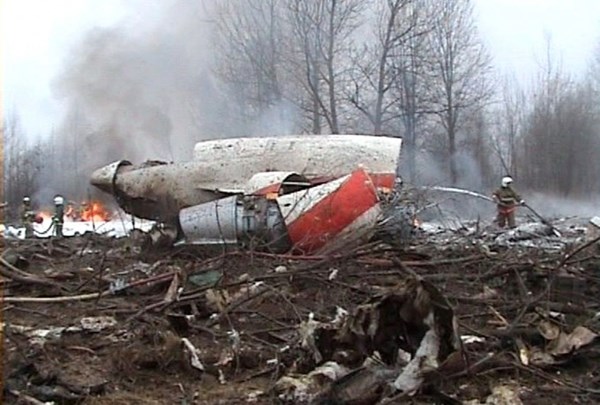Poland forms new commission to investigate Smolensk plane crash in 2010
The Ministry of Justice of Poland formed a new commission to investigate the plane crash near Smolensk in April 2010 that killed Polish President Lech Kaczyńsk. According to Polish Radio, it will include "experienced prosecutors from across the country," and will be headed by the Deputy Attorney General, Marek Pasionek.
"The task of the group is to conduct a full, comprehensive analysis of all materials associated with the tragedy near Smolensk, concerning the main and all other related investigations," the initiator of the creation of a new commission, the Minister of Justice and Attorney General of Poland, Zbigniew Ziobro said. "We will do everything to make the truth show itself," he added.
According to the president of the Katyn Committee, Andrzej Melak, everyone has been waiting for the government to take this step, because the investigation has not yet been carried out in accordance with international standards.
According to TASS, to pursue the case, prosecutors from the main Military Prosecutor's Office, who were handling the case previously, had been transferred to other departments. The Ministry of Defense said that "personnel transfers are normal." Meanwhile, prosecutors, displaced from their posts, consider this a violation of the law and plan to challenge the decision.
Last week, the main Military Prosecutor's Office of Poland extended the date of completion of the investigation of the crash near Smolensk for another six months - from April 10 to October 10. "In spite of the implementation of the numerous legal proceedings aimed at clarifying the causes and circumstances of the accident, the investigation could not be completed in a period of time set for it before," the representative of the Prosecutor's Office, Marcin Maksyan, said.
Also, last Wednesday, the head of the Polish Ministry of Foreign Affairs, Witold Waszczykowski, said that the aircraft crash near Smolensk, "had the same result as if someone wanted to eliminate the leadership of Poland." The disaster led to a radical change in foreign policy of Poland, Waszczykowski said. He refused to accept the findings of the Interstate Aviation Committee, which investigated the circumstances of Kaczyński's plane crash. The minister accused Russia of refusing to cooperate with the Polish investigation. According to the minister, the Polish specialists have no access to the aircraft wreckage and the "black boxes". In addition, they cannot interview the flight operations officers who were responsible for the operational control at the time.
Prior to that, Polish Defense Minister Antony Macierewicz said that the plane crash near Smolensk should be regarded as an act of terrorism. "After the Smolensk catastrophe, we can say that Poland became the first victim of terrorism in the framework of the modern conflict that plays out before our eyes," the minister stated.
According to Macierewicz, Warsaw's attempt to raise the issue "of the Katyn genocide has caused a reaction which was not expected by anybody in the world... This reaction has brought death to the whole Polish elite. I mean the death of the Polish delegation near Smolensk," Macierewicz said. However, he did not directly accuse Russia of a terrorist attack, but called the terrorism, which "did not exist in the history of the Western Christian world," a "product of socialist-Soviet ideas."
The plane carrying Polish President, Lech Kaczyński crashed near Smolensk when it got caught in a tree line because of poor visibility due to heavy fog. The plane was en route to Katyn, where the Polish delgation was travelling in order to hold a memorial for the Polish officers who were killed at the hands of the Soviet NKVD in 1940, an event known as the Katyn Massacre. The plane crash took the lives of 96 people.
